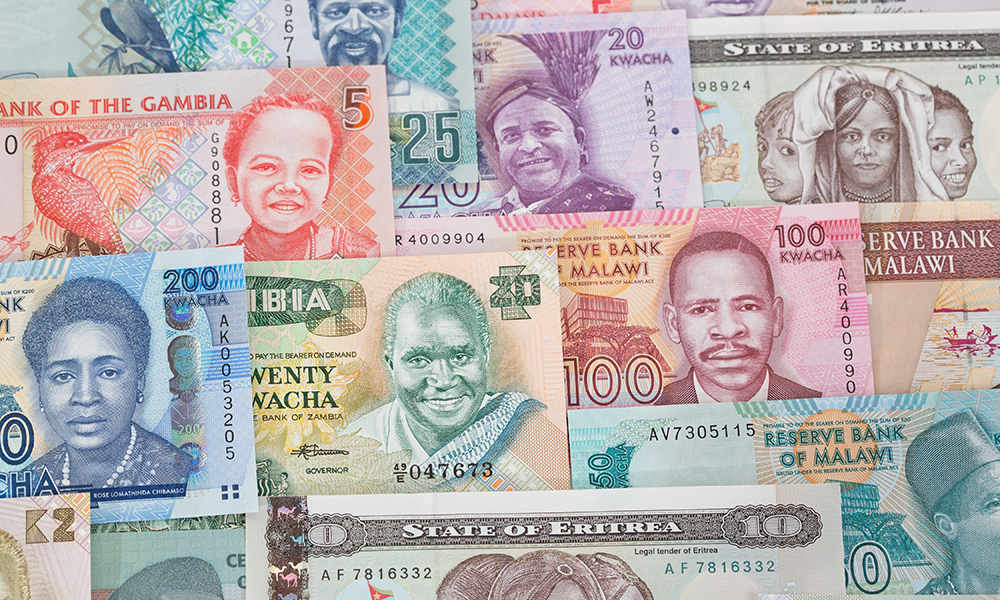
在当今高度互联的世界里,跨境资金流动可能成为整个国家的生命线,也可能变成瓶颈。长期以来,全球金融体系一直更有利于发达国家,诸多发展中国家只能努力应对经济不平等以及随之而来的政治动荡。然而,Web3技术正利用金融普及和经济赋权的新工具绕过现有秩序。世界将面临转型,比特币(Bitcoin)和USDC等数字货币正逐渐缩小差距,改变人们的生活。
试想下:从尼日利亚汇款至加纳,花的时间居然比亲自开车穿过边境送钱更久,成本也更高。为什么?因为传统电汇要先经过纽约和伦敦才能返回非洲。
尼日利亚的迪克森·恩索福尔等创新者发现,人们需要更便捷的方式。四年前恩索福尔就已开始尝试,创立了泛非支付基础设施公司Korapay。他把区块链和加密货币当成交换媒介,而不是投机资产。在该思路指导下,他创建了利用Web3相关发明跨境支付的平台。
如今,Korapay已经是尼日利亚规模最大的企业到企业跨境汇款机构。公司利用比特币、USDC和其他加密资产处理数十亿美元的支付,同时以传统法定货币结算交易。值得注意的是,很多跨国公司使用Korapay的服务将尼日利亚奈拉兑换成美元的同时,根本不知道过程中使用了加密货币和稳定币。这表明,恩索福尔之类的创新者已彻底重组传统金融的运转机制。
为什么USDC等稳定币在非洲如此流行?关键在于经济差距明显的大背景、货币不稳定的现实以及金融独立的愿望。
举个例子,尼日利亚超过40%的人口年龄不到15岁。不少年轻人希望借助加密货币突破本地货币限制。随着移动互联网渗透率提升,现在自由职业者和零工可选择以数字资产获得报酬,因为数字资产保值率比起受恶性通胀和市场贬值影响的本地法定货币要好。在为我的新书《Web3:互联网下一个经济和文化前沿》进行的一次采访中,恩索福尔告诉我,公司里的尼日利亚年轻员工都更喜欢用USDC、USDT甚至比特币支付工资,而不是尼日利亚奈拉,因为数字资产保值能力更强,如果用稳定币的话用处还更大。
美元化转变的现象,也就是说本地人比起法定货币更喜欢USDC等资产的影响其实远超过金融方面的便利。这一趋势代表着经济机会巨大转变:个人可以在全世界任何地方的互联网组织工作,通过稳定的数字资产积累财富。
目前来看,经济体美元化对世界的影响最终算不算积极尚不清楚。美元化过程中如果本地货币崩溃,动荡地区脆弱政府的稳定性可能进一步动摇。例如,尼日利亚央行刚开始对加密货币持敌对立场,甚至发布禁令。尽管最近该国领导人暗示要为稳定币和代币搭建监管框架,但相关举措的后果仍不明朗。去年在沙特阿拉伯一场商界和政府领导人会议上,巴基斯坦央行行长雷扎·巴基尔表示,该行正考虑禁止所有数字资产,原因就是担心美元化。他担心自己执掌银行会失去对货币和利率的控制,为此愿意采取严厉措施。禁令并未施行,巴基尔也已经离开该岗位。
尽管面临种种挑战,数字资产的应用仍在继续。就连联合国难民署都开始利用区块链技术,向乌克兰等战争地区的流离失所者发放数字现金。此举不仅可以保护资金,也凸显了数字资产广泛的吸引力。
加密货币和区块链技术在非洲及其他地区迅速应用,不仅仅是金融领域的趋势:刚开始是生存策略,随后发展成为经济繁荣的平台。最重要的是,这证明了发展中世界人们的韧性和创新能力。为所有人打造更包容也更公平的金融未来方面,确实应该充分承认Web3的潜力。(财富中文网)
亚历克斯·塔普斯科特是《Web3:互联网下一个经济和文化前沿》一书作者。《财富》网站评论文章仅为作者本人观点,不代表《财富》的观点。
译者:夏林
在当今高度互联的世界里,跨境资金流动可能成为整个国家的生命线,也可能变成瓶颈。长期以来,全球金融体系一直更有利于发达国家,诸多发展中国家只能努力应对经济不平等以及随之而来的政治动荡。然而,Web3技术正利用金融普及和经济赋权的新工具绕过现有秩序。世界将面临转型,比特币(Bitcoin)和USDC等数字货币正逐渐缩小差距,改变人们的生活。
试想下:从尼日利亚汇款至加纳,花的时间居然比亲自开车穿过边境送钱更久,成本也更高。为什么?因为传统电汇要先经过纽约和伦敦才能返回非洲。
尼日利亚的迪克森·恩索福尔等创新者发现,人们需要更便捷的方式。四年前恩索福尔就已开始尝试,创立了泛非支付基础设施公司Korapay。他把区块链和加密货币当成交换媒介,而不是投机资产。在该思路指导下,他创建了利用Web3相关发明跨境支付的平台。
如今,Korapay已经是尼日利亚规模最大的企业到企业跨境汇款机构。公司利用比特币、USDC和其他加密资产处理数十亿美元的支付,同时以传统法定货币结算交易。值得注意的是,很多跨国公司使用Korapay的服务将尼日利亚奈拉兑换成美元的同时,根本不知道过程中使用了加密货币和稳定币。这表明,恩索福尔之类的创新者已彻底重组传统金融的运转机制。
为什么USDC等稳定币在非洲如此流行?关键在于经济差距明显的大背景、货币不稳定的现实以及金融独立的愿望。
举个例子,尼日利亚超过40%的人口年龄不到15岁。不少年轻人希望借助加密货币突破本地货币限制。随着移动互联网渗透率提升,现在自由职业者和零工可选择以数字资产获得报酬,因为数字资产保值率比起受恶性通胀和市场贬值影响的本地法定货币要好。在为我的新书《Web3:互联网下一个经济和文化前沿》进行的一次采访中,恩索福尔告诉我,公司里的尼日利亚年轻员工都更喜欢用USDC、USDT甚至比特币支付工资,而不是尼日利亚奈拉,因为数字资产保值能力更强,如果用稳定币的话用处还更大。
美元化转变的现象,也就是说本地人比起法定货币更喜欢USDC等资产的影响其实远超过金融方面的便利。这一趋势代表着经济机会巨大转变:个人可以在全世界任何地方的互联网组织工作,通过稳定的数字资产积累财富。
目前来看,经济体美元化对世界的影响最终算不算积极尚不清楚。美元化过程中如果本地货币崩溃,动荡地区脆弱政府的稳定性可能进一步动摇。例如,尼日利亚央行刚开始对加密货币持敌对立场,甚至发布禁令。尽管最近该国领导人暗示要为稳定币和代币搭建监管框架,但相关举措的后果仍不明朗。去年在沙特阿拉伯一场商界和政府领导人会议上,巴基斯坦央行行长雷扎·巴基尔表示,该行正考虑禁止所有数字资产,原因就是担心美元化。他担心自己执掌银行会失去对货币和利率的控制,为此愿意采取严厉措施。禁令并未施行,巴基尔也已经离开该岗位。
尽管面临种种挑战,数字资产的应用仍在继续。就连联合国难民署都开始利用区块链技术,向乌克兰等战争地区的流离失所者发放数字现金。此举不仅可以保护资金,也凸显了数字资产广泛的吸引力。
加密货币和区块链技术在非洲及其他地区迅速应用,不仅仅是金融领域的趋势:刚开始是生存策略,随后发展成为经济繁荣的平台。最重要的是,这证明了发展中世界人们的韧性和创新能力。为所有人打造更包容也更公平的金融未来方面,确实应该充分承认Web3的潜力。(财富中文网)
亚历克斯·塔普斯科特是《Web3:互联网下一个经济和文化前沿》一书作者。《财富》网站评论文章仅为作者本人观点,不代表《财富》的观点。
译者:夏林
In today’s hyperconnected world, the flow of money across borders can be either a lifeline or a chokehold for entire nations. For too long, the global financial system has favored the privileged, leaving many countries in the Global South grappling with economic inequality and the political instability that comes with it. Web3 technologies, however, are routing around the incumbents, with new tools for financial inclusion and economic empowerment. It’s a story of transformation, where digital currencies like Bitcoin and USDC are bridging gaps and changing lives.
Consider this: Wiring money from Nigeria to Ghana takes longer and costs more than physically driving it across borders. Why? Because traditional wire transfers bounce through New York and London before returning to Africa.
Innovators like Nigeria’s Dickson Nsofor have recognized the need for a better way. Nsofor’s quest began four years ago when he founded Korapay, a Pan-African payment-infrastructure company. He viewed blockchain and cryptocurrencies as media of exchange, not as speculative assets. That insight led him to create a platform that leveraged these Web3 inventions for cross-border payments.
Today, Korapay is the largest cross-border business-to-business remitter in Nigeria. It processes billions in payments through Bitcoin, USDC, and other crypto assets while settling transactions in traditional fiat currencies. Most remarkable, many global companies use Korapay’s services to exchange Nigerian naira for U.S. dollars without even knowing they’re using cryptocurrencies and stablecoins. This shows how innovators like Nsofor are already retooling the engine of traditional finance from the bottom up.
Just why are stablecoins like USDC growing so popular in Africa? The answer lies in the broader context of economic disparities, currency instability, and the desire for financial independence.
In Nigeria, for example, over 40% of the population is younger than 15. Young people are embracing cryptocurrencies as a means of transcending the limitations of local currencies. With increased mobile internet penetration, freelancers and gig workers can now opt for payment in digital assets that hold their value better than local fiat currencies subject to hyperinflation and market devaluation. In an interview for my new book, Web3: Charting the Internet’s Next Economic and Cultural Frontier, Nsofor told me how every one of his young Nigerian employees would prefer to get paid in USDC, USDT, or even Bitcoin rather than naira because those assets are a better store of value, and in the case of stablecoins, more useful.
This shift toward dollarization—where locals prefer assets like USDC over fiat money—has implications far beyond financial convenience. It represents a seismic shift in economic opportunity: Individuals can work for internet-native organizations anywhere in the world and accumulate wealth in stable digital assets.
Whether the dollarization of these economies will be a net positive to the world is unclear. The collapse of local currencies under dollarization could further destabilize fragile governments in volatile regions. The Central Bank of Nigeria, for instance, initially took a hostile stance toward cryptocurrencies, even proposing a ban. While its leaders have recently hinted at creating a regulatory framework for stablecoins and tokens, the consequences of such moves remain uncertain. Last year, the governor of the Bank of Pakistan, Reza Baqir, told an assembly of business and government leaders in Saudi Arabia that his bank was considering a ban on all digital assets over concerns of dollarization. He was worried that the very bank he ran would cede control over money and interest rates, and was willing to take drastic measures. That ban never took effect, and Baqir is no longer in the job.
Despite these challenges, the adoption of digital assets marches on. Even the U.N. High Commissioner for Refugees has turned to blockchain technology to distribute digital cash to displaced persons in war-affected regions like Ukraine. This not only protects the funds but highlights the broader appeal of digital assets.
The adoption of cryptocurrencies and blockchain technology in Africa and beyond is more than a financial trend: At first, it’s a survival strategy, and then it’s a platform for thriving economically. Above all, it’s a testament to human resilience and innovation in the Global South. Let’s recognize Web3’s potential to create a more inclusive and equitable financial future for all.
Alex Tapscott is author of Web3: Charting the Internet’s Next Economic and Cultural Frontier. The opinions expressed in Fortune.com commentary pieces are solely the views of their authors and do not necessarily reflect the opinions and beliefs of Fortune.






